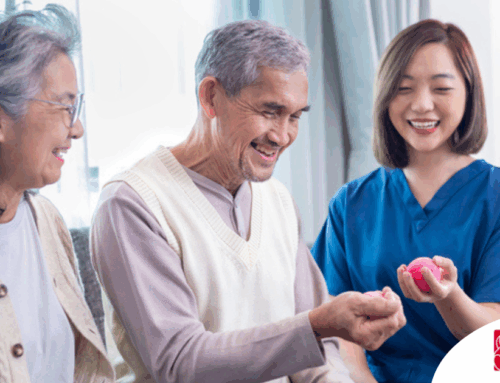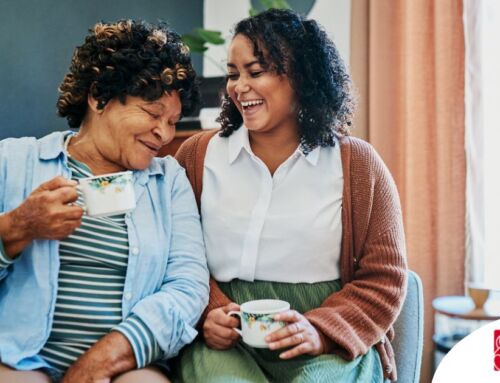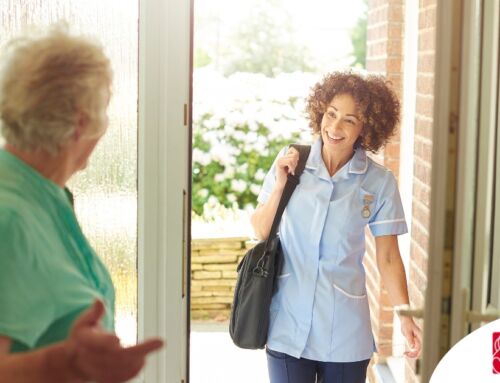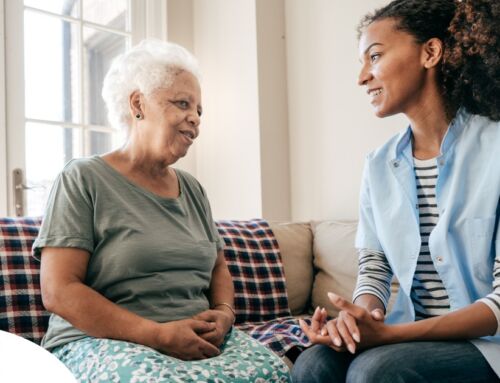Hip complications may stem from physical trauma, such as falls or accidents, or illnesses like arthritis. The hip, a pivotal joint connecting the lower limbs to the pelvic girdle, is vital for mobility and daily activities. However, this robust ball-and-socket joint is not immune to complications. Additionally, excessive strain or prolonged periods of immobility can trigger issues.
Understanding Hip Complications in Adults
For younger individuals, hip health might be a distant thought as they enjoy the freedom to walk and run without any restrictions. Moreover, medical conditions impacting the hip, such as arthritis, are relatively uncommon in this age group.
In contrast, seniors face a different scenario. Conditions like osteoarthritis and osteoporosis are more prevalent, posing potential threats to their hip health. With CareGivers of America, these individuals can receive much-needed assistance for elderly at home. Our in-home care services can aid in the proper management and treatment of such conditions, effectively mitigating the pain and challenges associated with hip problems.
Triggers of Hip Complications in Seniors
Multiple factors can contribute to hip complications in the elderly population. Let’s delve into some of these issues:
Osteoporosis
As we age, bones lose their density and strength, becoming brittle over time. This is a condition known as osteoporosis, often associated with the aging process. Brittle bones can easily fracture, and healing can be a challenge. Consequently, seniors with osteoporosis may end up wheelchair-bound due to broken bones. This fragility means adults need to exercise caution at all times. If osteoporosis affects the hip, the likelihood of hip complications increases. To mitigate the risk of falls, homes should be senior-friendly with adequate lighting, stair railings, and single-level living arrangements if possible.
Falls
Falls are a leading cause of fractures in seniors, often underreported. The common hotspots for falls are bedrooms, stairways, and bathrooms. Factors like poor lighting, throw rugs, and uneven surfaces can cause falls. Additionally, side effects of certain medications, including those for depression, high blood pressure, sleep disorders, heart conditions, and diabetes, can contribute to loss of balance and subsequent falls. Seniors taking multiple medications or those who have recently changed their prescription are at a heightened risk.
Hip Arthritis
Arthritis, characterized by joint inflammation, can affect any joint in the body, including the hip. Symptoms include limited joint mobility, swelling, and severe pain. Arthritis affects more than half of the adults over 65, many of whom experience chronic hip arthritis. Regular exercise can help alleviate the symptoms.
Car Accidents
While no one plans for it, car accidents are an unfortunate reality that can lead to injuries, including hip fractures. Proper pain management and, in some cases, surgery may be required for treatment.
Bursitis and Tendinitis
These conditions primarily result from excessive wear and tear due to overuse, affecting the hip joints and other joints in the body. Overuse causes the tendons connecting muscles to the hip joint to wear out over time. This issue isn’t solely for the elderly; younger athletes also report hip complications.
Navigating these health challenges can be overwhelming, which is where CareGivers of America can step in. Offering comprehensive in-home care services, our experienced home health aides and professionals provide the necessary assistance for elderly at home. Through our personalized home healthcare services, we strive to ensure seniors lead a safe and comfortable life within their homes.
Management of Hip Complications
Understanding the root causes of hip problems provides a roadmap for their prevention. Let’s explore further.
Falls, a major contributor to hip complications, can be minimized by decluttering floors, installing railings along staircases, and enhancing home lighting for better awareness. Seniors should consider wearing comfortable, non-skid shoes and installing grab bars in washrooms. Regular repair of sidewalks and walkways ensures a smooth surface to walk on, minimizing the risk of trips and falls. Reducing alcohol consumption can also be beneficial, as it can exacerbate existing health conditions and increase the risk of falls.
Prevention
Regular Exercise
Prevention is better than cure, and this holds true for any hip complications. Regular, low-impact exercise can work wonders for hip health. However, excessive or high-impact exercises may harm the hip joints. Safety should always be a priority when exercising. A proper warm-up prepares the body for the workout, while a cool-down after exercise helps eliminate by-products like lactic acid, preventing muscle cramps.
Recommended Exercises for Hip Health
- Walking: Regular walking is a low-impact exercise that promotes hip health. Opt for comfortable attire and shoes and consider walking to nearby places instead of driving.
- Swimming: This full-body, low-impact exercise is beneficial for all muscle groups, including hips. It is advisable to swim with a partner for safety reasons.
- Marching: This simple exercise can be done at home. Stand straight, slowly lift one leg above the hip joint, hold for a few seconds, and lower it slowly. Repeat this with the other leg.
- Seated marching: Similar to standing marching, sit on a sturdy chair with your knees at a 90-degree angle. Lift one leg towards your chest, hold it for a few seconds, and then lower it slowly. Repeat with the other leg.
- Bridges: Lie down on your back, bend your legs until your feet are flat on the floor. Lift your hips by squeezing your glute muscles, hold for a few seconds, and then lower it slowly.
Before starting any exercise regimen, it is crucial to consult with your healthcare provider.
Treatment Options for Hip Complications
Hip Replacement
Hip replacement surgery is a common treatment for severe hip problems. Despite being a costly procedure, it restores normal walking abilities and significantly improves quality of life. Seniors should consult with experienced medical practitioners to understand the pros and cons of this surgery.
Wrap Up
Dealing with hip complications can be challenging. CareGivers of America is here to offer assistance for elderly at home. Our home health aides and professionals provide personalized home healthcare services, ensuring a comfortable and safe environment for seniors. Additionally, we offer home aide services and guide you through the complexities of long term care insurance policies. With CareGivers of America, you’re never alone on your journey to better health.
~ ~ ~
For over 30 years, CareGivers of America has proven our leadership in the home health care industry while showing continuous dedication in referring the highest level of care. There is an alternative to nursing homes and assisted living facilities; Home Health Care. We serve families in the south Florida counties of Palm Beach, Broward, and Miami-Dade.
Do you have questions about how you can better support your loved one while they age in place in south Florida or regarding homecare in general? Please contact us here: Click here to contact us or call us toll free: 800-342-4197
Our amazing mailing list is where you’ll receive special content, click here to subscribe.
*No information in this article is to be taken as advice, medical or otherwise. This post is not sponsored, but may contain external links to websites, articles or product examples. External links are used for example or reference purposes only and these links do not indicate specific product or website endorsement by CareGivers of America.





